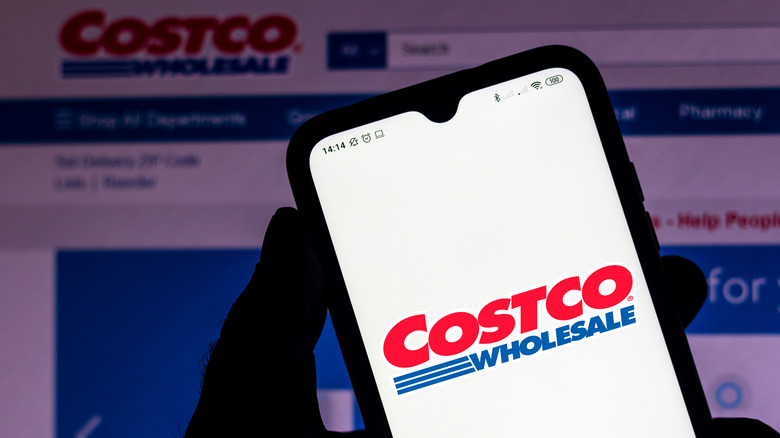Why Costco Has An Advantage Over Target And Walmart
You may have heard the news last week of a freefall in the retail sector: As reported by CNBC last Tuesday, Walmart released its first-quarter earnings, which fell far short of analysts' expectations. With earnings down nearly 25% as compared with Q1 last year, Walmart's CEO cited in a press release that higher fuel prices, higher wages, and a disrupted supply chain are among the reasons for the chain's troubles. But the news rattled shareholders, and, shortly after the report came out, the retailer's stocks plummeted more than 11% (via CNBC).
Target, which offers customers a similar shopping experience to Walmart's, also released its Q1 earnings report last week, with the retailer reporting increased sales at its store and online but increased costs for that company that CEO Brian Cornell similarly attributed to supply chain issues and higher wages (via CNBC). Following the publishing of the report, Target's shares fell 25%, hitting a 52-week low.
And if Walmart and Target make you think of Costco, the wholesale giant that's also know for its customer-friendly prices, you might be wondering how that chain fared in Q1, and the answer is: pretty good, according to The Motley Fool, which notes that Costco actually releases monthly earnings reports, which have been up over the past few months. And yet, due to the concerns that rattled shareholders in the retail sector, the wholesaler's stock also plummeted following last week's earnings reports, falling about 13%.
Costco's situation might not be as dire as that of Walmart and Target
With shareholders in the retail sector selling off stock after disappointing earnings reports from Target and Walmart last week, Costco, too, saw a drop in its stock, according to The Motley Fool. But the investment guidance service explained that the wholesaler might have a leg up over those other two retailers regardless, writing that one key factor has been better able to insulate the brand against the inflation and supply chain issues that are plaguing its competitors.
That factor is Costco's membership model, with the store's basic membership fee of $60 per year adding up to a nice chunk of change for the brand. Costco's membership renewal rates continue to increase, according to its earnings reports, and paying those dues each year is something that tends to make customers want to shop and make the most out of their membership, according to The Motley Fool.
The site reports that since Costco gets all those membership fees coming in on a rolling basis, the company consistently has revenue in pocket, allowing its stores to offer customers good prices and be careful about the increases it passes down to them. Those lower prices, during a time of record inflation, keep members coming in to take advantage of the deals they've quite literally paid for, via their memberships. So if you're a Costco shareholder — or shopper — things might not be as bleak as they seem.

